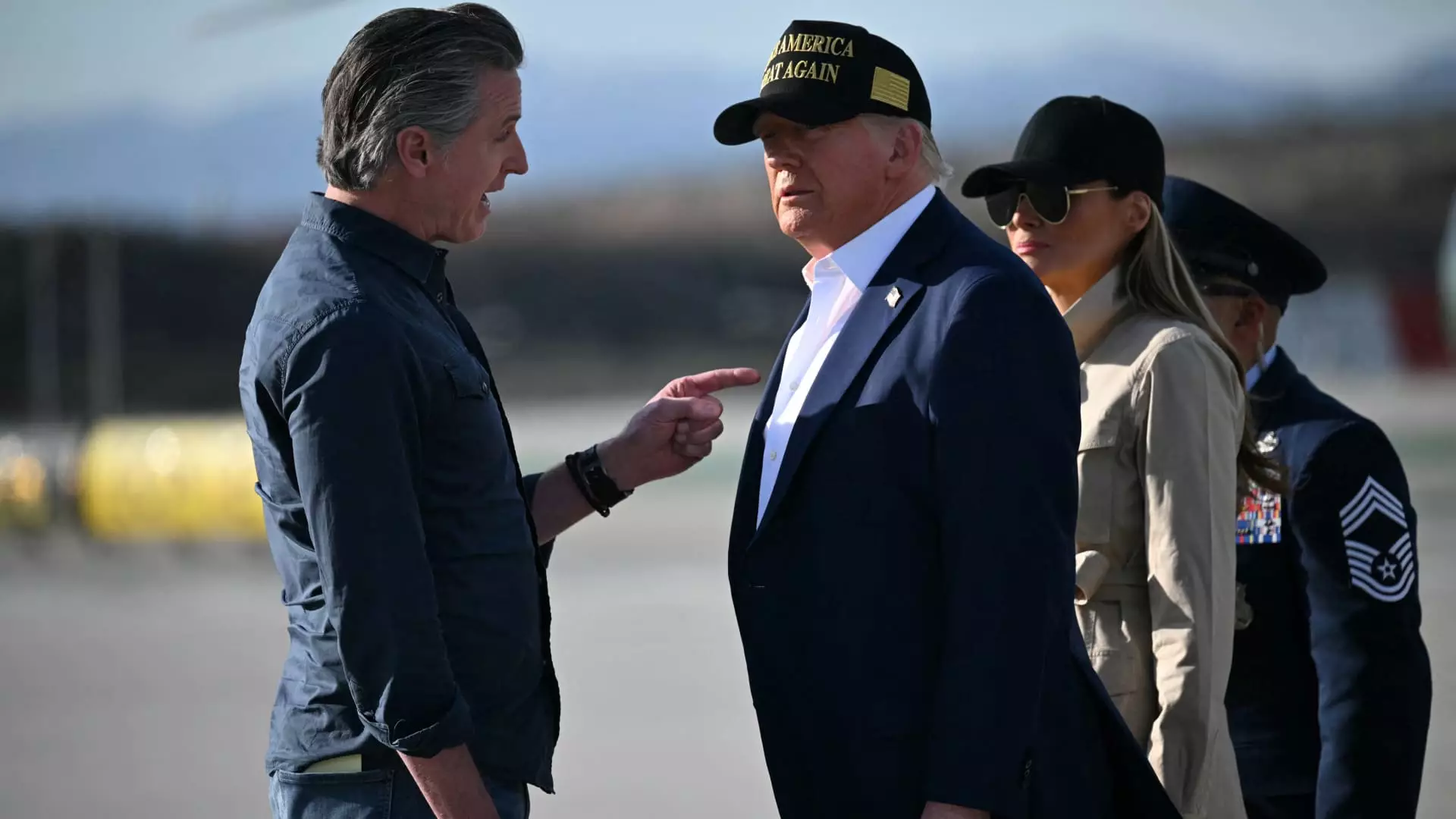In a striking display of political theater, former President Donald Trump has threatened California with the withdrawal of substantial federal funding if the state continues to oppose his executive order prohibiting transgender athletes from competing in women’s sports. This brazen stance reflects an alarming trend where sports, once a platform for unity and competition, are now embroiled in the bitter debates over identity and rights. As a staunch advocate for transgender equality and inclusivity, it is hard to suppress the outrage at Trump’s willingness to leverage federal funding as a weapon against states that do not conform to his ideologies.
Trump’s erratic pronouncements often blend tradition with controversy, and this latest move is no exception. By positioning the issue as a matter of ‘fairness’ in athletics, he fails to grasp the real human narratives woven into the lives of transgender individuals. This is not simply an abstract legal battle; it’s about the aspirations, struggles, and identities of people like AB Hernandez—a California high school student whose pursuit of excellence in track and field is now a political pawn in Trump’s emerging culture war.
A Dangerous Precedent: Federal Funds as Political Leverage
The threat to withdraw “large scale federal funding” is not merely a hollow gesture; it harbors disastrous implications for California, which relies heavily on federal funds to support its myriad programs. With over a third of the state’s budget contingent on federal dollars, Trump’s gambit is not just a trivial maneuver but a significant alignment of political bias with economic repercussions. Selling the idea that financial support should hinge on compliance with his social agenda propagates a toxic environment that prioritizes punishment over dialogue.
As a central tenet of liberal values, inclusivity and the acceptance of diversity are paramount. Trump’s actions serve to undermine this philosophy, constraining the conversation around sports and identity to binary oppositions: biological women versus transgender women. In doing so, he neglects the broader implications of his decisions for those who simply wish to enjoy the right to participate and compete. Furthermore, this tactic demonstrates a willingness to sacrifice the wellbeing of individuals for political capital, which is a deeply troubling trajectory.
Gavin Newsom: A Study in Political Inconsistency
Moreover, California Governor Gavin Newsom’s response to this situation is steeped in political nuance and contradiction. On one hand, he criticizes the right for weaponizing the debate over transgender rights; on the other, he has expressed agreement with conservative positions on the fairness of allowing transgender athletes into girls’ sports. This method of balancing between different factions leaves one questioning Newsom’s commitment to championing the rights of marginalized communities. Is he a true advocate for transgender rights, or a political figure playing to a diverse audience?
In Newsom’s defense, his administration’s response demonstrated an understanding of the complexities of the issue. The California Interscholastic Federation’s (CIF) pilot entry process aims to navigate this contentious terrain reasonably. Yet, the question remains: is it enough? Simply creating a policy in response to an external threat does not resolve the underlying issues of discrimination and inequality that transgender athletes face. Legislation should be proactive, not merely reactive, to foster an environment conducive to equitable sporting experiences.
The Broader Implications: Rights, Public Funds, and Their Intersections
Trump’s approach is emblematic of a more significant concern in contemporary politics—the intersection between public funding and rights considered “politically undesirable.” By threatening financial repercussions, he sets a precedent where funds meant to uplift communities can be used to silence dissent or disagreement. This maneuvering reveals the difficulties presented to states and institutions caught in the crossfire between fiscal dependency and moral principles.
The stakes are far too high to reduce this issue to mere rhetoric. The lives of countless athletes hang in the balance, subject to the whims of a politically-charged environment. The responsibility rests not only with leaders in government but also with society at large, tasked with ensuring that every individual can pursue their passions without fear of retribution or exclusion.
It is critical to engage in robust discussions around identity, equality, and rights—not as means to an end, but as fundamental values that can reshape our future for generations to come. The future of sports and inclusivity should not be decided on a battleground of funding threats but should rather foster a framework of understanding, acceptance, and genuine competitive spirit.


Leave a Reply